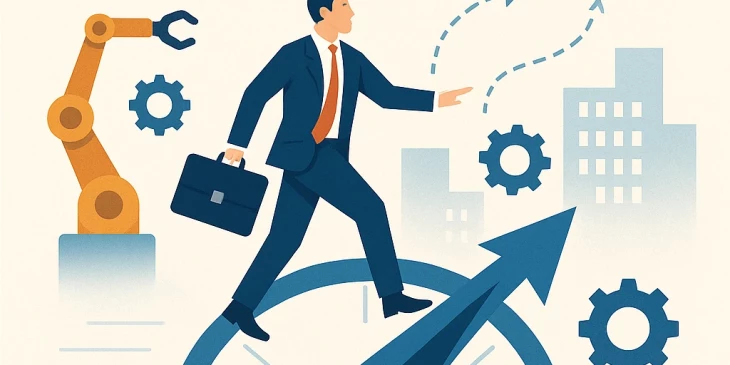Navigating the Future of Work: Strategies for Resilience
The workplace is evolving at an unprecedented pace, driven by rapid technological advancements and shifting societal norms. As we step into 2025, it is crucial for both individuals and organizations to develop resilience and adaptability to thrive in this new environment. This blog explores effective strategies for navigating the future of work.
Embrace Lifelong Learning
In a world where skills become obsolete quickly, cultivating a culture of lifelong learning is essential. Organizations should encourage continuous education through workshops, online courses, and training programs. Employees must take the initiative to upskill and adapt to new technologies and methodologies, ensuring they remain relevant in their roles.
Foster a Flexible Work Environment
The traditional 9-to-5 work model is becoming increasingly outdated. Companies should implement flexible work arrangements that allow employees to choose where and when they work. This flexibility not only boosts productivity but also enhances employee satisfaction and retention.
Leverage Technology for Collaboration
As remote work continues to be a norm, leveraging technology tools for collaboration is vital. Platforms like virtual project management tools, video conferencing, and collaborative software can bridge the gap between remote teams, ensuring seamless communication and teamwork.
Promote Mental Health and Well-being
With the pressures of modern work life, prioritizing mental health is more important than ever. Organizations should create support systems that promote mental well-being, such as access to counseling services, stress management resources, and wellness programs. A mentally healthy workforce is more resilient and productive.
Encourage Innovation and Creativity
To adapt to rapid changes, businesses must foster a culture of innovation. Encouraging employees to share ideas, experiment, and take calculated risks can lead to creative solutions and improvements. Recognizing and rewarding innovative efforts can further motivate teams to embrace change.
Build Strong Leadership
Effective leadership plays a crucial role in navigating change. Leaders should be transparent, communicative, and empathetic, guiding their teams through transitions with clarity and support. Strong leaders inspire confidence and resilience, empowering employees to adapt to new challenges.
Conclusion
The future of work presents both challenges and opportunities. By embracing lifelong learning, fostering flexibility, leveraging technology, prioritizing mental health, encouraging innovation, and building strong leadership, individuals and organizations can navigate this new landscape with resilience and adaptability. As we move forward, these strategies will be essential for thriving in an era of rapid technological change.



Leave a Comment
To post comment, please